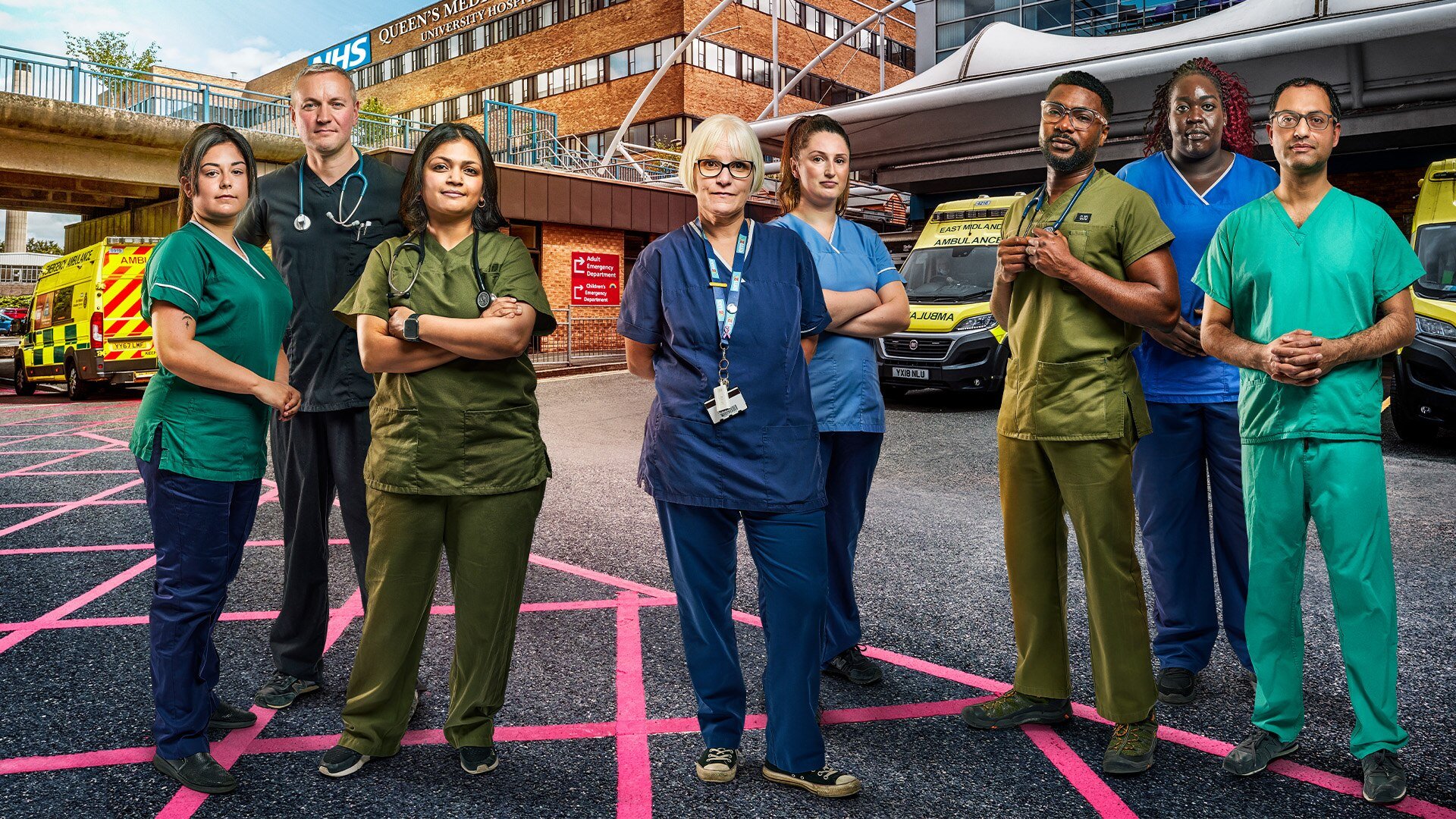
24 HOURS IN A&E
ROLE: Senior Gallery Producer Director
"24 Hours in A&E," the award-winning documentary series on Channel 4, offers an in-depth look at the high-pressure environment of one of Europe's busiest Accident & Emergency departments, whilst simultaneosuly telling the real-life stories of its staff and patients. The most recent series is filmed at Queen's Medical Centre in Nottingham, a major trauma center that treats over 600 patients daily.
The production employs over 100 fixed-rig cameras to capture the raw and authentic moments of both patients and medical professionals. This setup allows for minimal disruption while providing a comprehensive view of the daily operations in the emergency department. The production crew is extensive, comprising directors, producers, editors, and numerous freelance talents from across the Midlands and the North of England, further contributing to the local production ecosystem.
Critically acclaimed, "24 Hours in A&E" has received numerous accolades, including nominations for BAFTA Television Awards and wins at the Royal Television Society Awards. Critics praise the series for its compassionate storytelling and the intimate portrayal of the resilience and dedication of NHS staff.
Filming "24 Hours in A&E" involves an extensive setup of over 100 fixed-rig remote-controlled cameras in one of the UK’s busiest A&E and major trauma departments, making it the largest fixed-rig installation in the country. Over six weeks, we film continuously, 24/7, with four separate gallery and floor teams working in rotational shifts.
As a senior gallery producer and director, you hold the top position in both the galleries and on the hospital floor. Your responsibilities include ensuring comprehensive coverage of all cases that come through the doors, managing and supporting the staff, and maintaining constant communication via talkback.
Despite having over 100 cameras rigged throughout resus, majors, and minor injuries, we can only record a limited number simultaneously. This requires sharp editorial judgment to select the most compelling and consented cases, ensuring all aspects of the patients' journeys through A&E are documented while avoiding overextending the team.
Exceptional communication skills are crucial, as informed two-tier consent is a vital and intricate part of the process. Patients and staff must consent to being filmed, understanding their rights and the ability to withdraw consent at any time. Upholding the highest standards of respect, kindness, and sustained liaison with all involved is key to the success of this intimate, access-driven documentary series.
